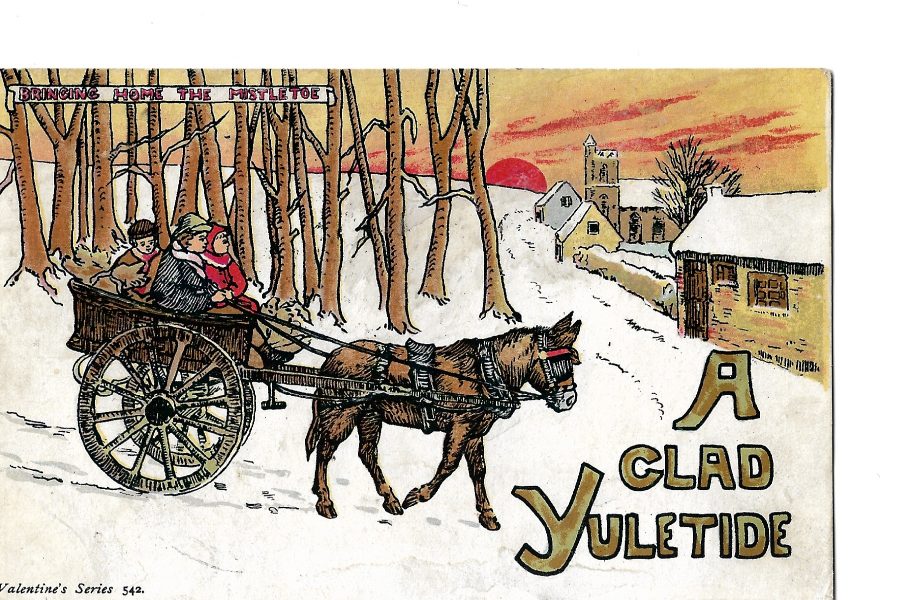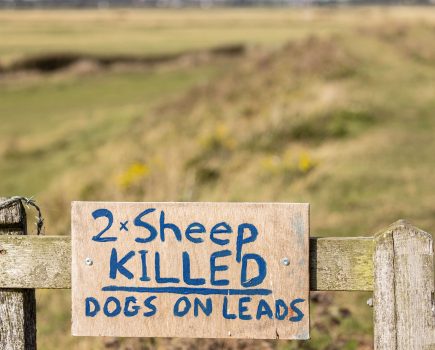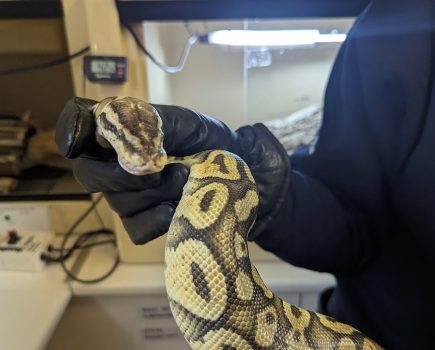Liz Wright charts the history of the donkey from Christmas to the current times and finds out how much we owe this often under-rated animal.
The importance of the donkey to civilisations all over the world, including the UK, cannot be over stated. In fact, it’s fair to say that the world has been built on the back of a donkey and for a significant part of the globe, it still it is.
The donkey supported people in trading links, bringing goods across inhospitable parts of the world to major civilisations, carried building materials, allowed communities access to food, water and healthcare plus, as we see on our screens now, was the only thing left in times of war or displacement to bring families to some sort of safety.
We should never underestimate how much the donkey has helped humans in all parts of their history, and continues to do so in the historical ways but also in modern ways such as therapy and leisure.
The donkey is an integral part of the Christmas story. It is there again at Easter, carrying Jesus on Palm Sunday. There are at least 93 mentions of the donkey in the Bible and spiritually, the donkey represents service, suffering, peace and humility, the values aligned with Christianity.
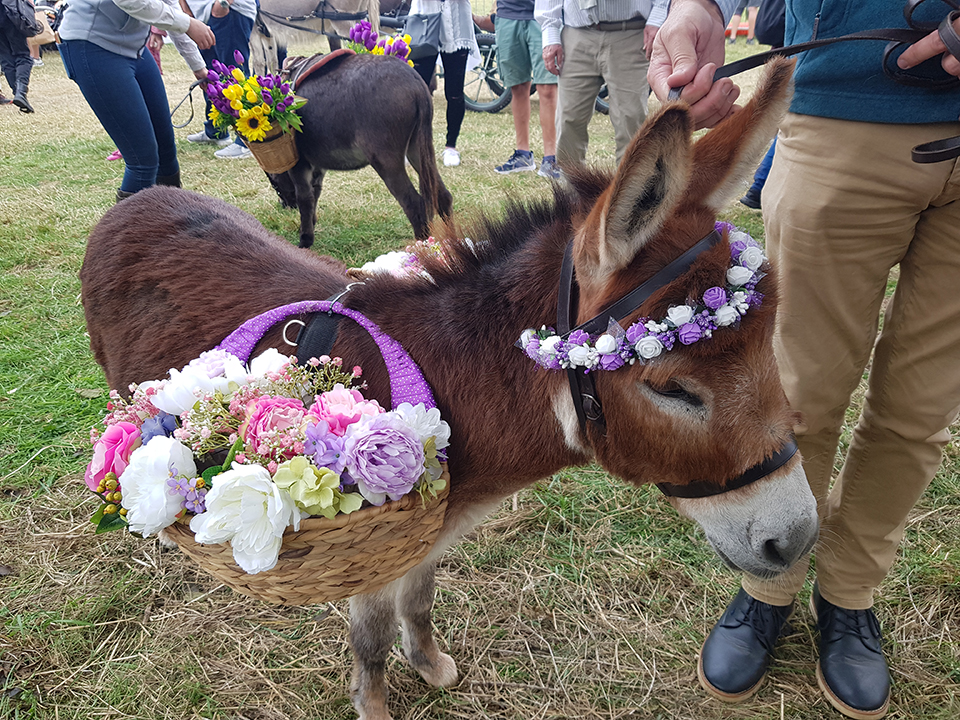
So why, when I try to buy any donkey decorations for my Christmas tree, am I mostly unable to do so? I see polar bears, hedgehogs, rocking horses, flamingos even, but I don’t see donkeys. Over the years I have managed to gather together a small collection of donkey ornaments, some of which I’ve either had to make myself or get from clever, crafty friends. It’s not like donkeys don’t appeal to people. They are an extremely popular animal so why can we not firmly fix them back into Christmas and respect their role in civilisation?
The donkey came to England with the Roman slaves, where it carried goods to support the army. In Egypt it was worshiped by some, so to be down-graded to a pack animal at slave level started the lack of respect for this strong animal. Once here, its usefulness knew no bounds. Pack animals were regularly used and this thrifty, hardy and adaptable beast was welcomed.
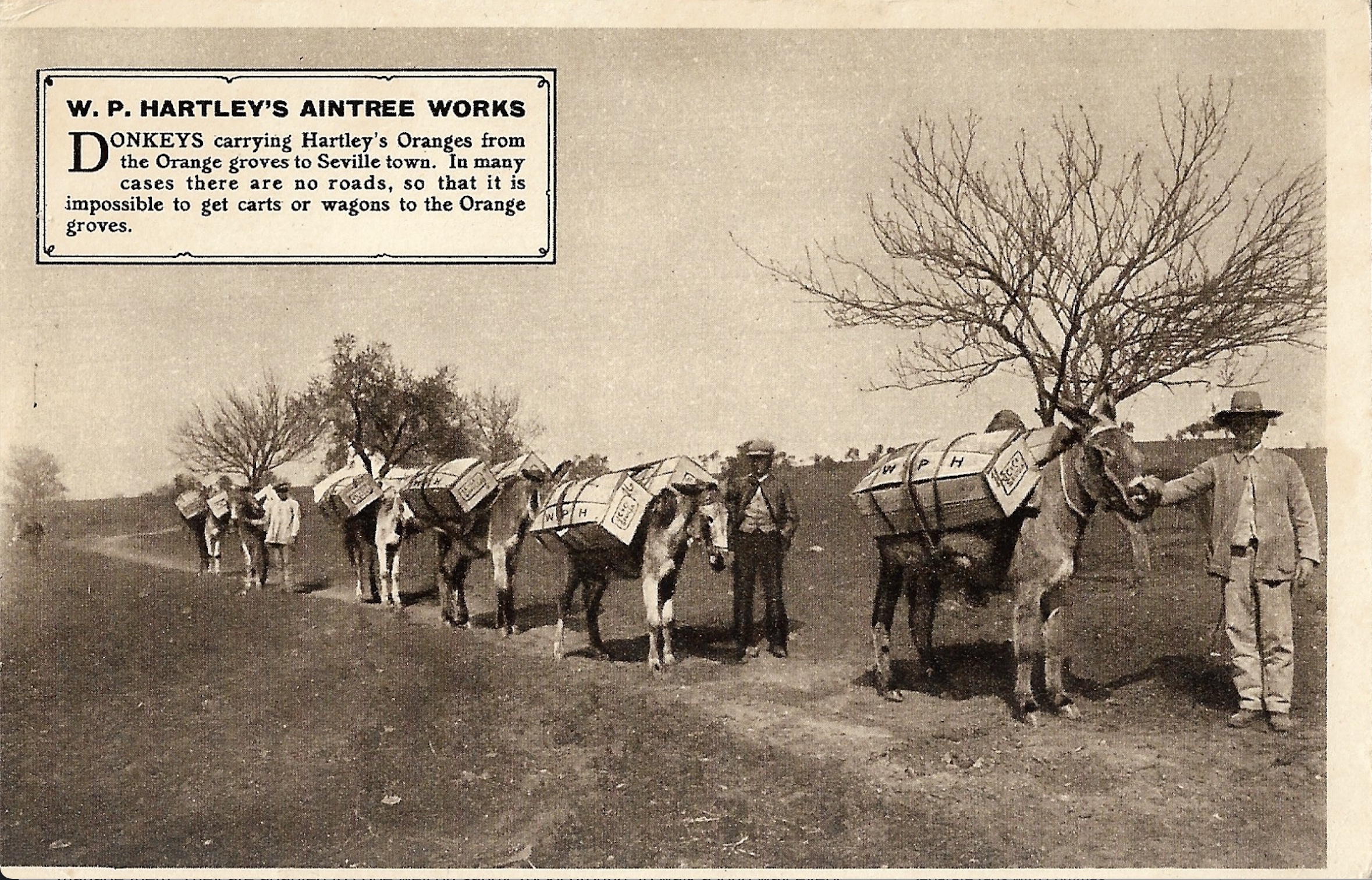
Image credit, above and main image: Liz Barrett
Donkeys originate from the desert and if you know that, then you can work out the best ways to manage them. They are adapted to cope well on sandy, rocky ground, to walk a long way every day to find not much fibrous food and their coats are not very waterproof, but are able to withstand cold desert nights. The complete opposite in fact of small, wet paddocks and our rain!
Eventually, the donkey made its way up to Scotland with the Romans, where the climate proved more of a challenge, although there is a healthy population in Scotland today!
The donkey did not arrive in Ireland until it went with the lower remnants of Cromwell’s army but quickly became an iconic part of Ireland and, well within living memory, was the main way to harvest peat.
An agricultural scheme, until recently, provided payments for having donkeys on less favoured land, which led to a very large population of donkeys, many of which were shipped to the UK for the leisure market.
The donkey was most useful to poorer people who could not afford a horse or pony but could manage to keep the humble donkey on common land or a tether. They did such a wide variety of tasks and even ploughed. Here, in the next village, we have a field known,as Donkey Land because it was ploughed with donkeys.
They were pivotal for carrying bricks and building materials and without a doubt, helped to build our cathedrals and Medieval halls. There is a reason why the phrase ‘donkey work’ means long, hard work.
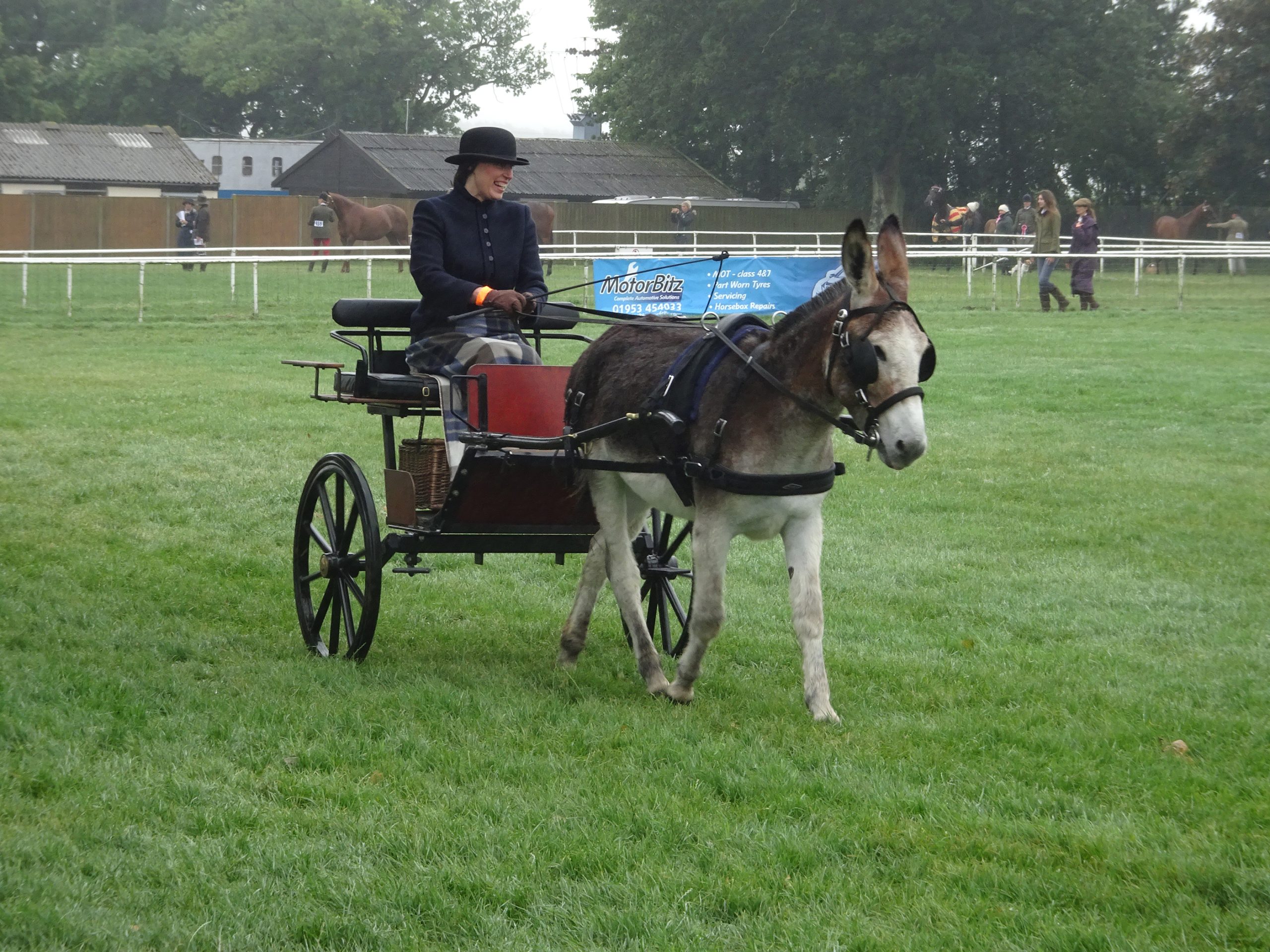
Driving donkeys is becoming increasingly popular
MILK WHITE MULES
Back in Tudor England, Churchmen could not ride fancy horses as their Lord Jesus had come into Jerusalem on a humble donkey, to show his humility. The churchmen of that time got round that by breeding mules. Mules are technically a donkey hybrid, bearing characteristics of both and arguably one of the most intelligent animals. They require careful handling to get the best from them.
A mule is a donkey father and female horse and a hinny is a donkey mother and male horse. Hinnys therefore, tend to be smaller than mules. Cardinal Wolsey was said to have ridden a milk white mule – a bit like not having a Ferarri but opting for a top of the range offroad vehicle! The mule was also trapped with gold, and Cardinal Wolsey’s retinue in red satin.
THE VICTORIANS’ FRIEND
The catalyst for the creation of the RSPCA was an incident in1822 when Bill Burns was found beating his donkey. Richard Martin, known as ‘Humanity Dick,’ introduced the world’s first legislation against animal cruelty in 1822. As well as fulfilling all the roles previously performed, the donkey moved deeper into town, being able to navigate the narrow alley ways of London and again, being cheaper to buy and keep. It became the choice for the costermonger to move fruit and vegetables. It also became an important part of the increasing trade at the ports and in industrial settings.
But slowly, it was starting to have another role. It’s at this time that the donkey often appears in the first photographs and certainly in paintings, of the better off children with donkeys. They were frequently ridden by children before they had a pony and many babies were photographed in basket saddles getting their first taste of equines.They also played their part in burials, horses pulling the hearses and donkeys the village biers.
Moving into the twentieth century, they were vital to both wars, not only in their often tragic service at the front, but also at home. Horses were requisitioned for both wars, and this removed not only riding horses but carriage horses. Enter the donkey, dust off the donkey trap and the donkey is back in its traditional role of fetching and carrying. It’s also back in its agricultural role, ploughing where the land is light and helping fetch in harvest. It’s small, manoeuvrable and cheap to keep. What’s not to like?
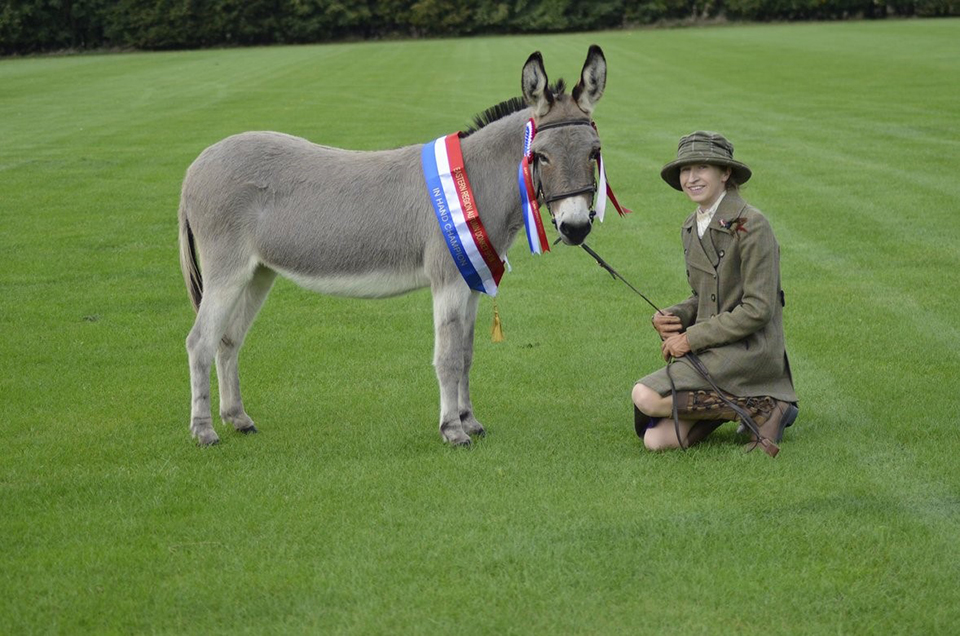
A show donkey – Jade Weaver at ERADS show
CHANGING FACE OF FARMING
As we get to the sixties and motorisation has largely taken over in industry, apart from the peat bogs in Ireland and specialist needs, the donkey is redundant except on the few remaining market gardens leftover from war time, which being close to towns, will soon be bought for building. So, in the sixties we see a huge rise of donkeys surplus to requirements. This brought about the founding of TheDonkey Sanctuary, when founder Dr Elisabeth Svendson came across some donkeys in need at a market and vowed to do something about their plight.
Also at this time, The Donkey Breed Society was formed, primarily to run donkey shows and to promote the donkey as a leisure animal. The world, for donkeys, in the UK was changing.
Today, there are few working donkeys and those that would be viewed as such are our well-regulated beach donkeys, those offering therapy, petting donkeys and donkey rides.
They must be licensed and inspected regularly, plus should have insurance. Should you see any donkeys working that you have concerns for, contact the local council of the area they are in to check they are licensed.
DONKEYS ON SHOW
There’s been an increase in the number of people driving their donkeys and, despite covid, most of the donkey shows have now returned and are very well supported. There are far less people breeding what we call standard donkeys and trying to find a show donkey is getting much more difficult. There’s no shortage of donkeys still but the show donkey, usually a whole colour grey but also brown and now chestnut, with it’s balanced conformation and quality head, is hard to find.
On the other hand, the introduction of mini donkeys which are typically 32–34 inches tall at the withers, has exploded and although a registered miniature donkey would cost in the region of £2000 plus, they are frequently seen at shows.
But beware, many people selling what they describe as minis are in fact selling small standard donkeys or small foals.
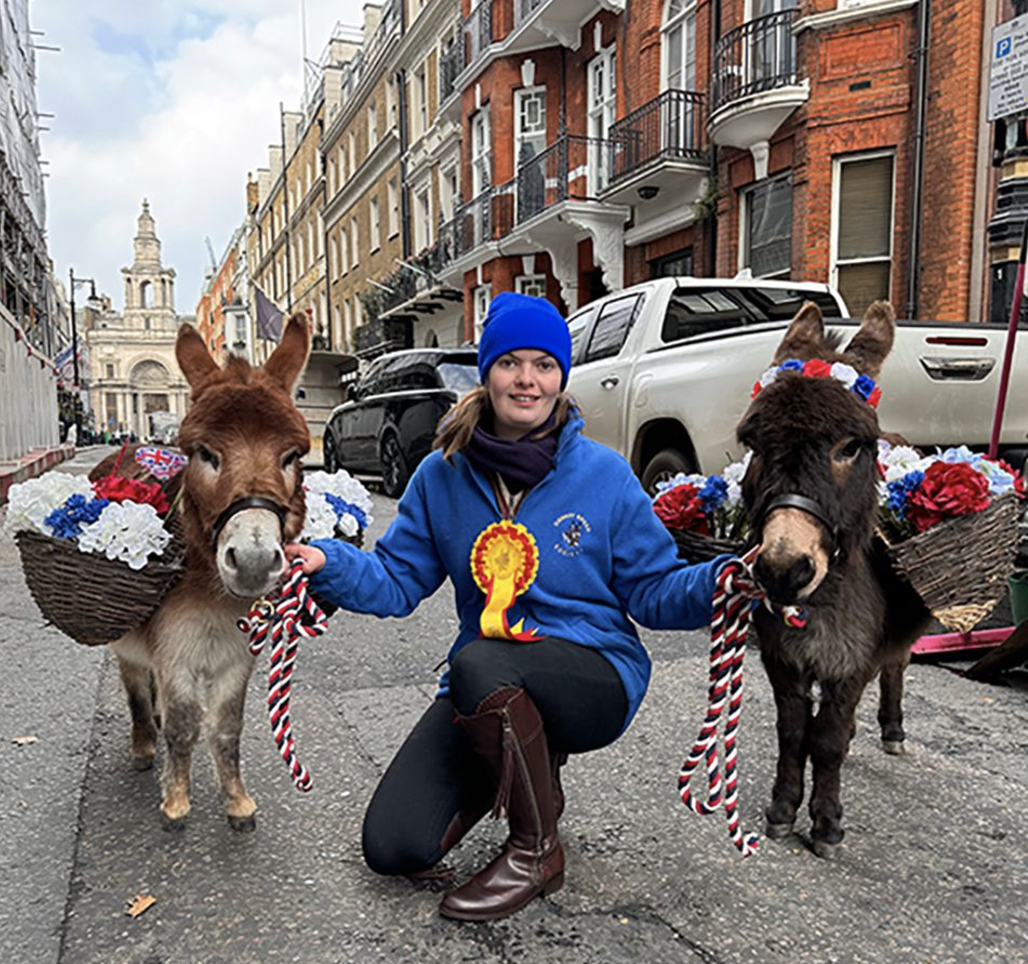
Miniatures at the New Year’s Day Parade, held annually in London
ADVICE ON BUYING A DONKEY
The Donkey Breed Society have advice on buying a donkey on their website. When buying donkeys (you should have two as they are unhappy on their own), then you must see and handle them. Do not buy from a website without seeing them. This is a purchase that can last over forty years so be sure you get the right donkeys for you. Lead them, pick up their feet and groom them before you buy. A genuine seller will be anxious to make sure you are the right person for their donkeys. Always look at the passports, never allow them to be sent on. Check that the donkey you are looking at is the right colour and has the same markings and whorls as the passport photo. It is illegal to move a donkey without a passport. If the donkey is an adult and the passport has only just been done, ask why it was not done as a foal and where did it came from? The Donkey Breed Society not only has a lot about donkey care, but its local groups run donkey days and courses, and it has a Youtube channel where a vet guides you though teeth, feet, worming, lameness, vaccinations and a nutritionist talks about nutrition. There is a lot of information out there on donkeys, be sure you do your research.
To find out more about donkeys in the West Bank and Gaza visit: www.safehaven4donkeys.org
This article originally appeared in the December 2024 edition of The Country Smallholder. You can buy the issue here.

